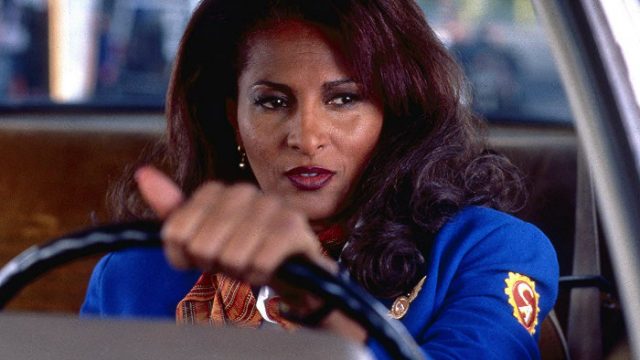Hello, dearies! July is almost over, and I have found articles on twee Scottish bands and Tarantino movies for you…
On the 19th, Rowan Kaiser at the AV Club defended the Veronica Mars movie:
“Veronica Mars (2014) resolves a core tension that dominates the show for good or for ill: Why does Veronica Mars do what she does? Not only does the movie give a final answer to that question, it answers it in a way that makes it an essential part of the entire text. Without the film, Veronica Mars feels incomplete. With it, the main character’s story arc receives the resolution it was so desperately missing across the original series run.”
Also on the 19th, Caity Weaver of The New York Times, explored the legacy of the Spice Girls:
“Here is a partial list of things the Spice Girls did in 1997: released the best-performing album of 1997 in the United States (‘Spice”); wore the famous Union Jack dress to the Brit Awards (Geri); shook hands with the Queen (also Geri); arrived at Cannes by speedboat to announce plans for a Spice Girls movie (‘Spice World’); recorded “Spice World” (the album) on the set of ‘Spice World’ (the movie), so that ‘Spice World’ (the movie) could have a soundtrack (the album); angered Maori leaders by performing the haka in Indonesia; traveled to South Africa to meet Nelson Mandela, who described the meeting as ‘one of the greatest moments in my life’; squeezed and cuddled and petted 13-year-old Prince Harry at the same event, causing him to blush furiously (two months after the funeral of his mother, Princess Diana); published a book; appeared in Istanbul for their first live concert (a Pepsi production); turned 21 (Emma); released ‘Spice World’ (the album); fired their manager (Simon Fuller, whom they have since rehired and who will produce an upcoming animated film featuring their music and voices); attended premieres of ‘Spice World’ (the movie) in London, Paris, Rotterdam, Madrid, Düsseldorf and Brussels; shot the music video for ‘Who Do You Think You Are’; shot the music video for ‘Spice Up Your Life’; shot the music video for ‘Mama’; kicked off the annual British Legion Poppy Appeal to commemorate war dead; collectively earned an estimated £300 million through merchandise sales.”
Since Jacobin articles always generate such positive feedback, I decided that share this one Micah Uetricht wrote about Belle and Sebastian, which was published on the 20th:
“But a clear takeaway is that without the Scottish welfare state, Belle and Sebastian would not exist. ‘If You’re Feeling Sinister’ is a direct product of UK social democracy.
And it’s a product of a welfare state that, for all the attempts to shred it during the era Belle and Sebastian first began playing together and since, was broad enough at that time to provide some level of subsistence not just for ‘the deserving poor,’ whoever that is — not just single mothers and unemployed former factory workers or miners, but also hipster musicians. And the program didn’t just cut them a check but gave them a place to meet other struggling musicians and play together.”
Tatiana Siegel explained how Leonardo DiCaprio became “Hollywood’s Last Movie Star” over on The Hollywood Reporter, on the 22nd:
“In an age of pre-branded franchises and social media currency, DiCaprio is a Hollywood unicorn, able to gross hundreds of millions of dollars without wearing a cape, wielding a lightsaber or even having an agent.”
On the 24th, our old friend Kate Erbland talked to Sarah Polley about Stories We Tell, as part of IndieWire‘s “Best of the Decade” series:
“While it was billed as a documentary and early materials hinted at its personal nature, few were prepared for the shocking intimacy on display, which blended both doc and narrative elements and told the story of Polley’s own parentage. Combining ‘flashback’ sequences in which the filmmaker cast actors as her own family interspersed with talking head interviews with the real people at its heart, ‘Stories We Tell’ takes the concept of the ‘family secret’ and turns it into both a vivid film and an audacious piece of storytelling.”
Mary McNamara, of The LA Times, talked about how AMC went from prestige to genre, on the 25th:
“For 10 years, everyone talked about nothing but television, with AMC at the dead center of the conversation.
Nowadays, there’s plenty of dead in AMC’s lineup — in addition to ‘The Walking Dead,’ ‘Fear the Walking Dead’ and the forthcoming spinoffs, the network’s slate leans increasingly supernatural — but not so much talk.”
Finally, Kieran Fisher discussed the maturity of Jackie Brown, on the 25th, over at Film School Rejects:
“‘Jackie Brown’ takes place in a world of crime and danger that’s unfamiliar to most of us. But by populating it with characters whose thoughts and feelings are universally human, its reality doesn’t feel farfetched at all. I love Tarantino’s other movies more than I do most movies in general, but I’d love to see him return to the contemplative brilliance he showcased with ‘Jackie Brown.'”
Enjoy!

